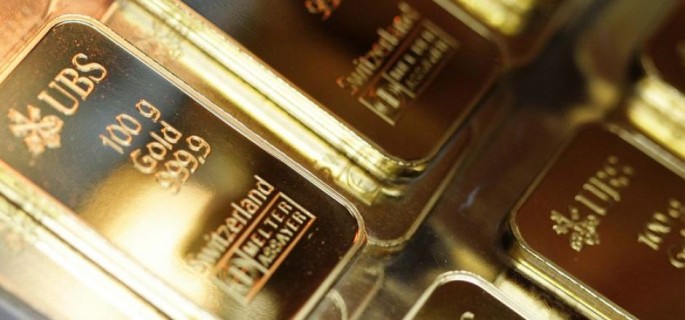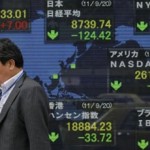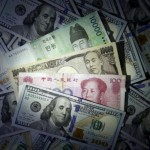Dollar Extends Retreat as Metals Advance With Asian Equities

-
Oil in New York holds losses near $46 before OPEC meeting
-
Lead, zinc surge; emerging currencies, gold also advance
The dollar fell the most since September versus major peers as traders focused on events this week that could derail its rally. Asian stocks climbed as metals surged.
The yen led the rebound versus the greenback along with the euro and emerging-market currencies. Shares from Hong Kong to South Korea rose, as gains in utilities and consumer stocks overshadowed losses in energy producers. Zinc and lead surged and gold climbed along with Treasuries while oil held declines near $46 a barrel.

The Bloomberg Dollar Spot Index is pulling back from a decade high before updates on U.S. gross domestic product, personal spending and nonfarm payrolls this week. President-elect Donald Trump’s promise to boost infrastructure spending has propelled bets on a December interest-rate hike to 100 percent. Crude held its losses amid anxiety prospects are fading for an OPEC production freeze agreement at the group’s formal meeting Wednesday after Saudi Arabia withdrew from talks Monday with producers outside the Organization of Petroleum Exporting Countries.
“With the dollar rally pausing for a breath, we are seeing long dollar positions getting closed out,” said Khoon Goh, head of regional research at Australia & New Zealand Banking Group Ltd. in Singapore. “With the yen falling the most among the G10 currencies since the U.S. election, it is natural for a larger rebound in that currency.”
Commodities
- Zinc rose 4.2 percent, headed for its highest close in nine years in London, as bullish speculative sentiment in China spurred a fresh surge for industrial metals. Lead is set for its strongest settlement since 2011.
- Gold for immediate delivery gained 0.8 percent to $1,192.84 an ounce following last week’s 2 percent decline, its third straight weekly retreat.
- West Texas Intermediate crude slipped 0.1 percent to $46.03 a barrel, holding declines after Friday’s 4 percent drop.
- As part of the final push to reach an agreement on curbing supply, oil ministers from Algeria and Venezuela headed to Moscow to get OPEC’s biggest rival on board for a deal to reduce production in an effort to support prices.
Stocks
- The MSCI Asia Pacific Index rose 0.8 percent, with the the sub-gauge of utilities gaining 1.4 percent.
- The Topix added 0.3 percent, erasing an earlier drop of as much as 0.5 percent. The Nikkei 225 Stock Average snapped a seven-day advance, declining 0.2 percent. Australia’s S&P/ASX 200 Index lost 0.5 percent.
- The Hang Seng Index rose 0.8 percent while a gauge of mainland companies traded in the city gained 1.1 percent. The Shanghai Composite Index added 0.5 percent.
- The Kospi index in Seoul reversed earlier losses to trade 0.4 percent higher, while New Zealand’s S&P/NZX 50 Index climbed 0.1 percent, inching toward a fourth day of gains.
- S&P 500 Index futures dropped 0.2 percent after the underlying benchmark set a new all-time high Friday as traders returned from the Thanksgiving holiday.
Bonds
- Yields on Australian government debt due in a decade lost six basis points, or 0.06 percentage point, to 2.7 percent.
- Yields on similar maturity Japanese, New Zealand and Hong Kong bonds fell at least two basis points.
- Ten-year Treasuries rose for the first time in three sessions, pushing yields down three basis points to 2.33 percent.
Source: Bloomberg





























